Clothing
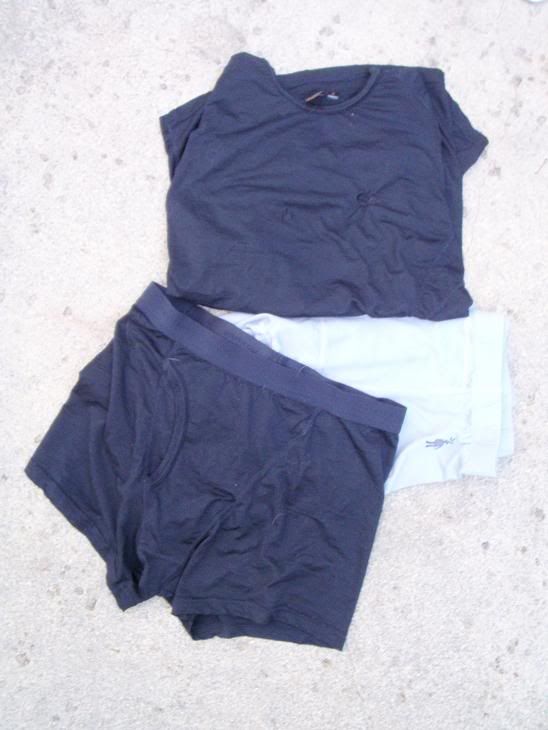
Baselayers (photo came out all washed-out): Icebreaker Merino Wool 150 T-shirt (very thin), IB 150 boxer briefs, and Smartwool thin "Long Johns".
-For day climbs, I sometimes wear cotton tighty whiteys. Cotton is bad, generally speaking, but I need to keep my furniture in line, and don't have a wool equivalent. I typically wear the Smartwool LJ's over them when I do.
-Long Johns are good for when you'll be standing around belaying or camping. I often just wear the t-shirt and underpants under my hard shell top and bottom (both of which lack insulation), as that is warm enough for me. I tend to stay warmer longer than most folks, and am comfortable with being cold for long periods of time. Your mileage may vary.
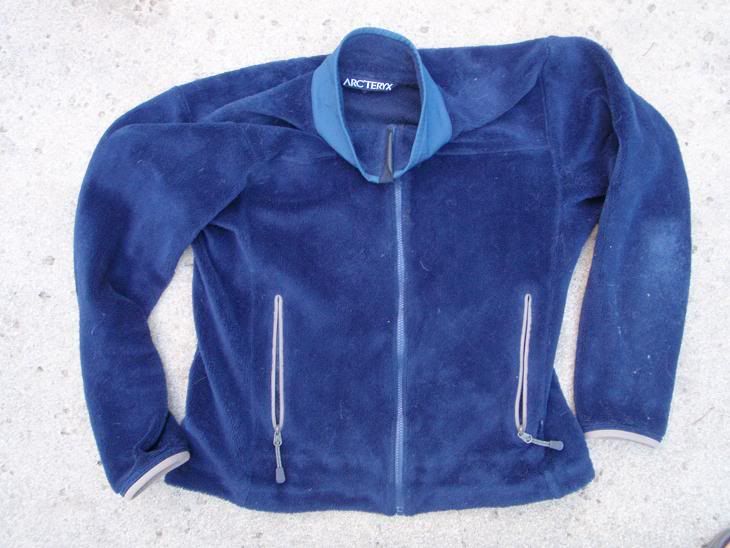
Softshell top: I wear some sorta Arc'teryx Polartec top I got for X-mas a few years ago. It compacts down rather nice. I put this on if I'm going to be standing around, or climbing in cold weather (snowing, strong winds, spindrift avys, that kinda stuff).
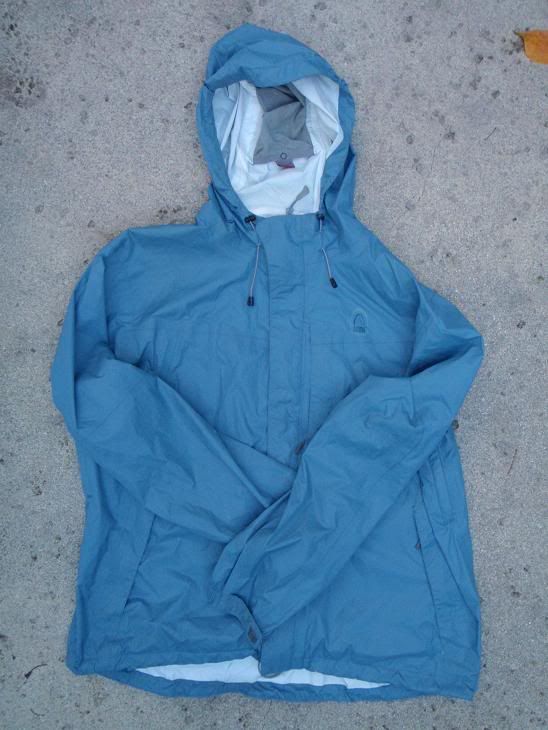
Hardshell top: Sierra Designs Hurricane. Simple lightweight waterproof hardshell. I bought this because it was pretty cheap. No complaints. Squishes down into the little grey mesh panel you see on the inside of the hood. Becomes about the size of a 6" sub sammich.
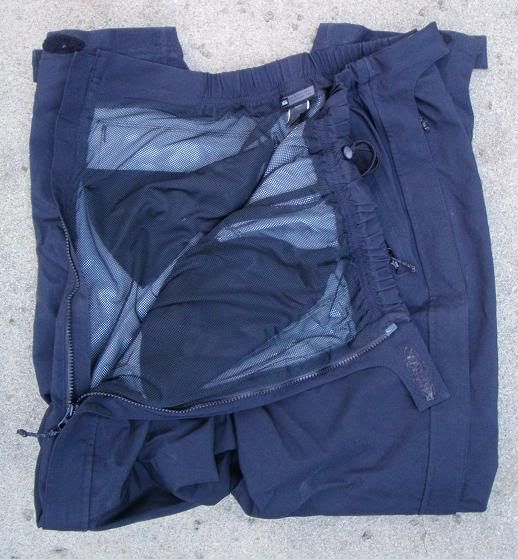
Hardshell pants: Some sorta REI snow pant or something. Waterproof, pretty thick, very durable. Great for glissading. I've run over a buncha rocks and tree limbs while glissading, and there are no holes in it. Had this for a couple seasons.
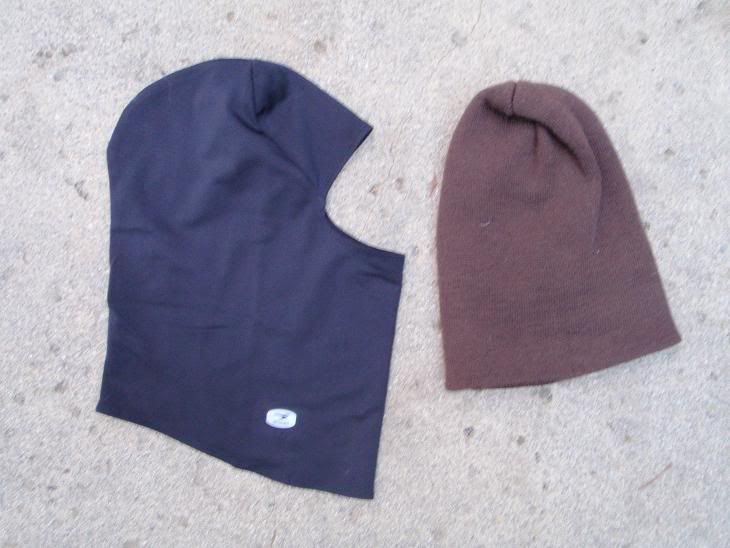
Headwear: Sugoi balaclava on the left, and a generic beanie on the right. The balaclava is really nice, doesn't soak up water, and transfers moisture rather efficiently. The beanie is just one of about eighty trillion I have on hand. The one I use most is a Nike Dryfit, in white. It compacts down real small and is more efficient at not being really damn cold when wet than an acrylic or wool beanie.
Not pictured is a Soviet Ushanka, which I wear often when I have the space in my pack. It is very warm, but never too warm, and it looks really cool. Slavic climbers FTW.
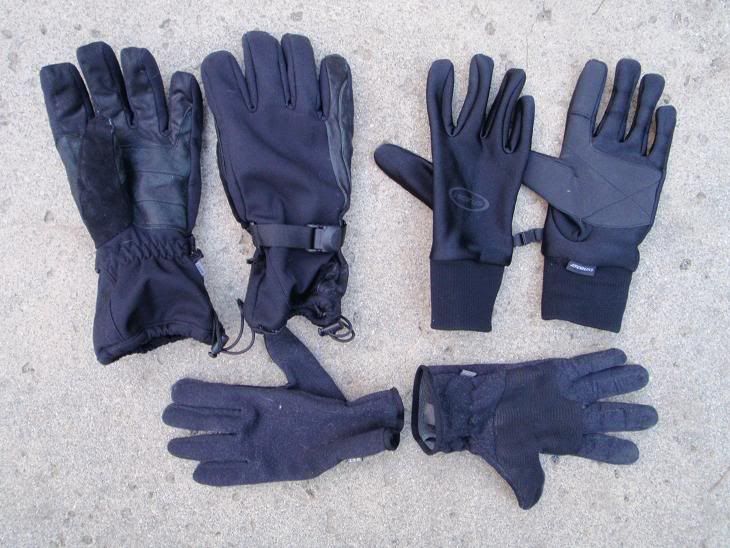
GROBES! (Gloves in Japanese...
Gloves are a very personal topic. I cannot afford the gloves I want, and to be honest I don't know if I'd even want those gloves (mixed/ice gloves), since nobody stocks them around here, so I can't try them on. Not that I can afford any of that anyway...
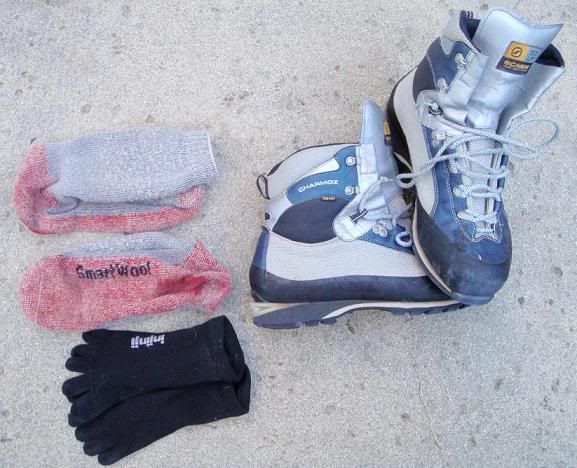
Footwear: Scarpa Charmoz GTX's. These are basically the same as La Sportiva Trangos, except they're blue. They're excellent for alpine climbing, ice climbing, and rock up to about 5.8 in friendly conditions.
I've got a pair of Smartwool Mountaineering socks in the picture. Underneath them is a pair of Injinji toe socks, which I've been wearing instead of other liners for a few climbs now. I really like them. I originally bought them for use with my Vibram Five Fingers. No complaints and no blisters since I've started using them. I woulda thought the low hem in the back would be a sore spot, but such is not the case.
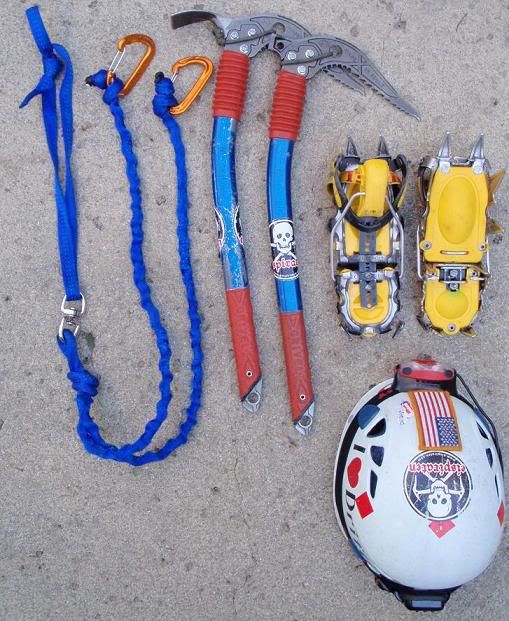
Technical gear: I use Grivel Matrix Light ice tools. They're inexpensive (relatively speaking). They come with a hammer (really damn small hammer) head. One must buy the adze head separate for around $55, and CUT OFF the ends of the screws before replacing the hammer head. It's kind of a bitch. The end result is a pretty nice tool that works extremely well on alpine climbs, and OK on vertical water ice.
I've got a home made ice tool tether deal in blue right there. It was a pain in the ass to make, but it's way the hell better than leashes for alpine climbs. Again, your mileage may vary. I don't like using leashes in the mountains.
The crampons are the ubiquitous Grivel G12's. I've removed the spring steel adjustment deal for the center bar, and bolted the crampons. This is much more rigid, and I no longer have the problem of my crampons falling apart on easy terrain, as they had done twice before (once in a storm, Augie M. had to help me out with that one!). Horizontal front points are best for most mountain applications, such as alpine ice and snow, as vertical points shear out easily (according to all the books I've got... I don't have vert point pons). Vert points would be the dog's bollocks on mixed routes and hard ice routes.
The helmet is the usual Petzl something or other that everyone uses. I've got the somewhat-new Mammut Lucido TX-1 on it, which is quite powerful. I've got a sinking feeling I'll want to trade it in for a Petzl Myo... guess I'll find out when I actually have to use the thing.
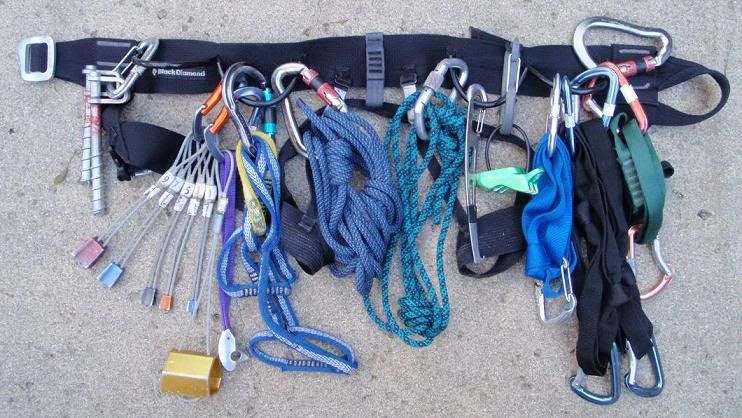
Rack: A handful of nuts (lol), one #9 or so hex, a #2 or so Tricam (my favorite bit of kit ever ever ever), two old school I'm-broke-and-can't-afford-a-hamburger-let-alone-$60-apiece-ice-screws Salewa pound-start ice screws, one 12ft cord, two Prussik cords, one leaver locking biner, one large belay locker, one nut tool, and a Petzl Reverso 3 belay device. This rack is set up for One Nut Wonder on Telegraph Peak, which I am climbing tomorrow. Only one nut was used on our first ascent of that route a few years back, but conditions are much different now than then.
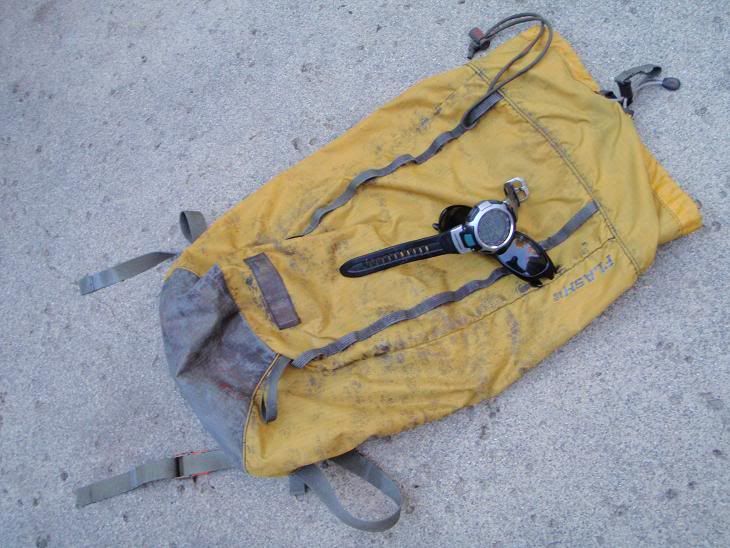
Pack etc: REI Flash 18 pack, some Oakley sunglasses, and a Casio Pathfinder watch (alti-baro). Not shown are the water bottle, snack bars, and dog tag with whistle that will also be carried tomorrow.

